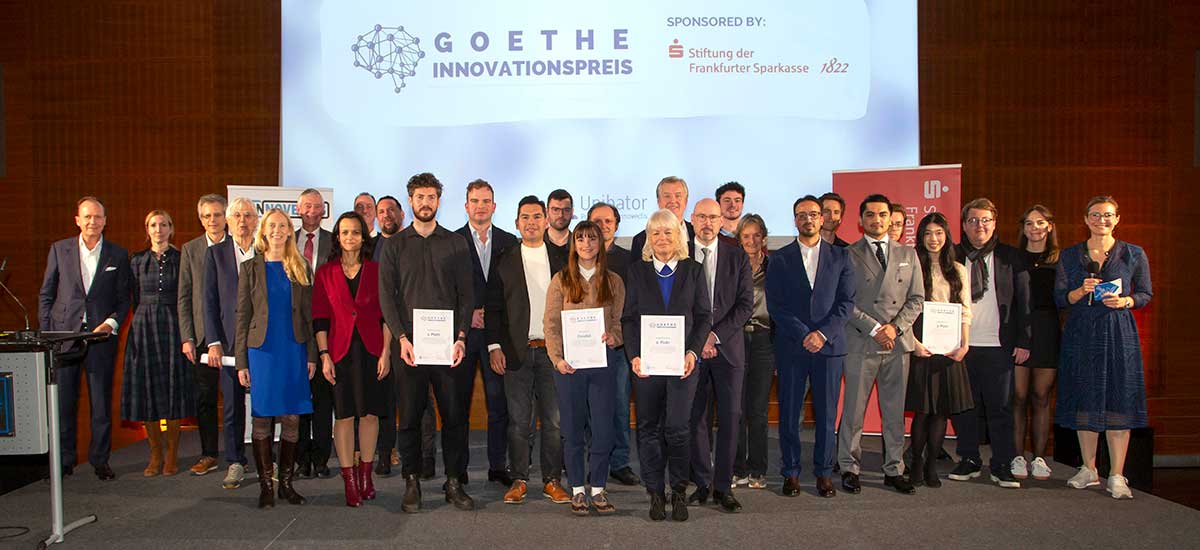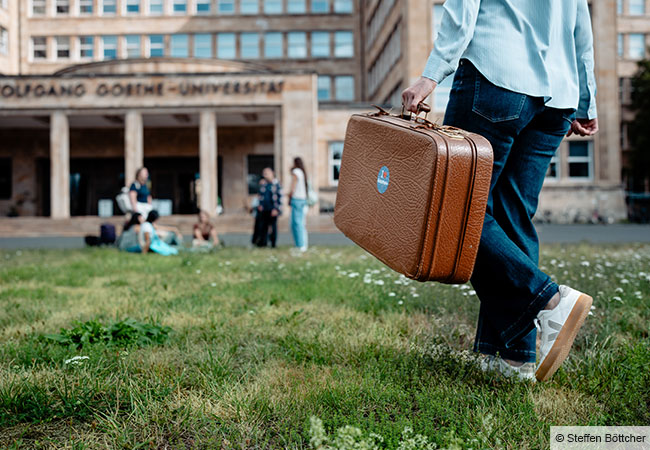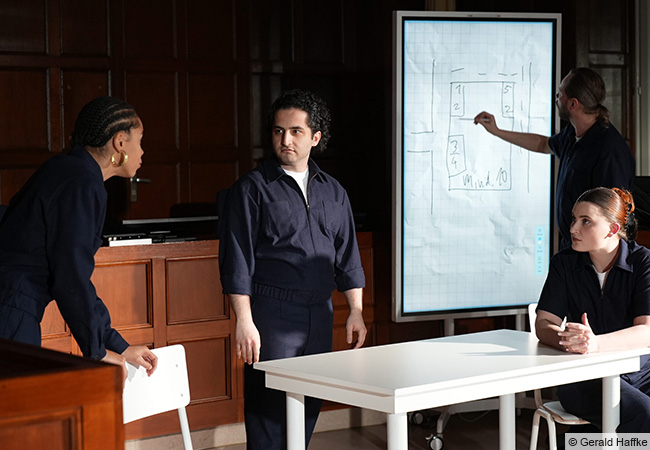Prizes go to research projects on osteoporosis diagnosis, mRNA-based reactivation of tumor suppressor genes in ovarian cancer, and innovative heating solution using infrared technology

This year’s Goethe Innovation Award honored outstanding research projects with great application potential. Six finalist teams presented their innovative ideas before a jury of experts, which then selected the winners. The award, organized by Goethe-Unibator and sponsored by Stiftung der Frankfurter Sparkasse, supports the start-up culture at Goethe University and promotes the implementation of projects in the Unibator start-up program.
Innovative approaches in the fields of medicine, technology and sustainability stood at the center of this year’s Goethe Innovation Award. Held on Westend Campus, the award ceremony serves as a highlight in the calendar of Frankfurt’s start-up scene. Organized by Goethe-Unibator, Goethe University’s entrepreneurship center, and sponsored by Stiftung der Frankfurter Sparkasse, the Goethe Innovation Award recognizes research projects with high application potential. After an exciting pitch competition during which six finalist teams presented their projects, an expert jury selected the winning teams. In addition to prize money, the winning projects also get to participate in the Unibator Startup Program.
First prize went to BMDNow, a software solution that uses CT data to automatically determine bone density and thus enable the early diagnosis of osteoporosis. Leon Grünewald and his team impressed the jury with an innovative application that has the potential to revolutionize access to preventive diagnostics.
Second place went to the project “mRNA-based reactivation of tumor suppressor genes in ovarian cancer”, which was developed by Prof. Dr. Klaus Strebhardt and his team. Using in vitro-transcribed mRNA, they restore the functionality of tumor suppressor genes like p53 and DAPK1 to inhibit the growth and metastasis of high-grade serous ovarian carcinomas.
Third place was awarded to the iClimate Technologies project by Temur Ismadiyarov’s team. The innovative heating solution combines infrared technology with sustainable materials and stylish design to create energy-efficient and environmentally friendly heating panels.
Other finalists included DataNXT, Backen für die Zukunft: Vitamin B12 in Hefe [Baking for the Future: Vitamin B12 in Yeast] and Bundestags-Mine. Audience and jury were impressed with the creativity and scientific approach of the teams, which presented, among others, a multi-agent architecture for real-time financial analysis, a genetically optimized yeast for vitamin B12 production, as well as an AI-supported platform for analyzing political data.
Dr. Kirstin Schilling, managing director of Innovectis, emphasizes: “The Goethe Innovation Award shows our university’s enormous potential for innovation. Our aim is to put these research results into practice, thereby creating long-term value.”
Prof. Dr. Michael Huth, Goethe University vice president and Innovectis supervisory board chairman, adds: “In addition to promoting outstanding research with this award and Unibator’s services, we are also strengthening the start-up culture at Goethe University.”
A special highlight of the program was the keynote speech by Prof. Dr. Sandra Ciesek, director of Frankfurt University Hospital’s Institute of Medical Virology. Her lecture titled “Science in the pandemic – a review from a virologist’s perspective” highlighted the challenges and findings gained during the pandemic. Another notable moment was the ceremonial retirement of Innovectis supervisory board member Dr. Altfried M. Lütkenhaus. Dr. Lütkenhaus was an important pillar of the technology transfer company for many years and significantly contributed to its success.
Goethe Unibator, Goethe University’s entrepreneurship center, offers a wide array of support measures – from office space and coaching to networking with investors. Thanks to the continuous development of these services, Goethe University has been one of Germany’s leading start-up universities for years.







